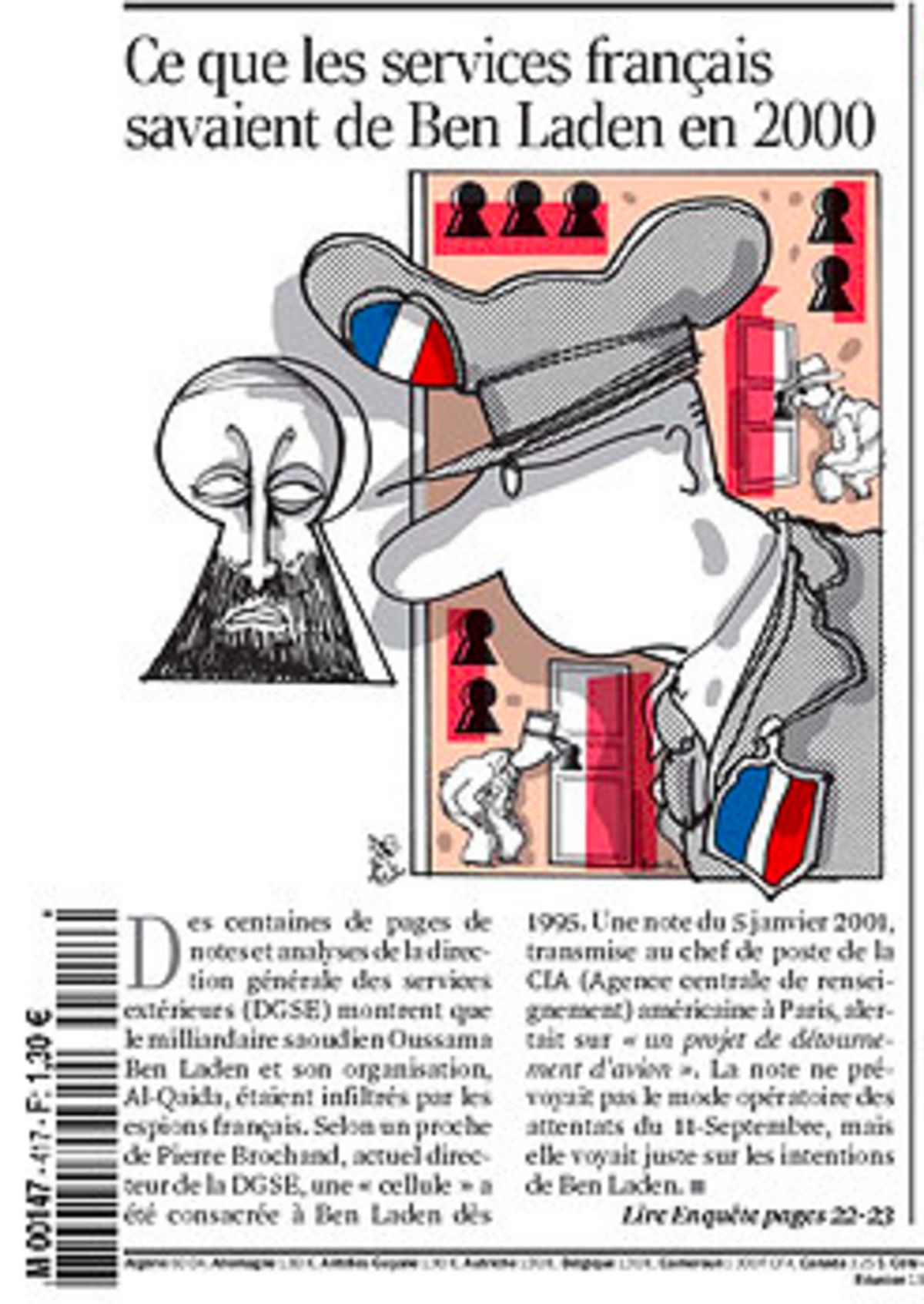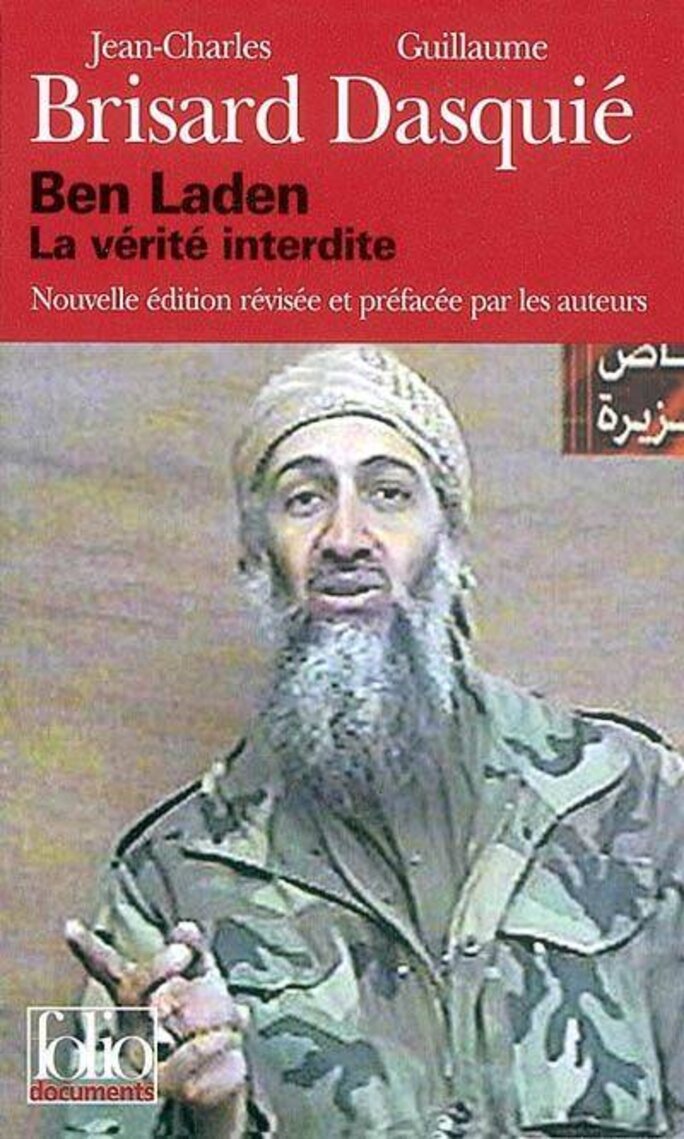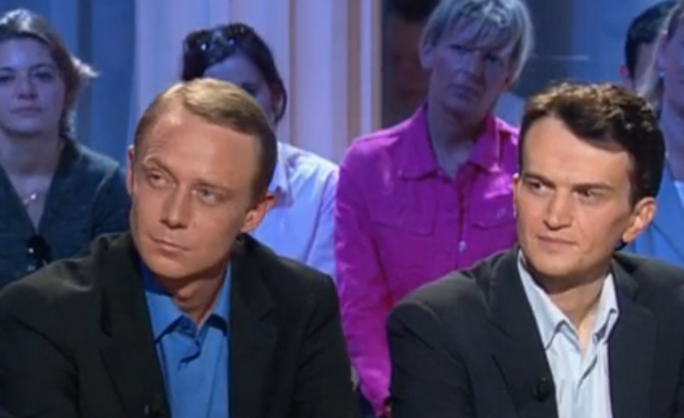A French journalist who wrote an article published in French daily Le Monde revealing confidential French secret service documents about the activities of Osama Bin Laden allegedly first attempted to sell the files to American lawyers representing the families of victims of the September 11th 2001 terror attacks in the United States.
Osama Bin Laden, believed to have ordered the September 2001 attacks on New York and Washington, was killed by US special forces in a raid on his Pakistan hideout on May 2nd 2011.
Guillaume Dasquié, now editor of French news and features website Owni, allegedly tried to negotiate a payment of 150,000 euros from US law firm Motley Rice in February 2007 in exchange for the secret documents on Bin Laden and his network belonging to the DGSE, France’s foreign intelligence services, now renamed the DCRI.

Dasquié, then a freelance journalist, published an article in French daily Le Monde in April 2007 in which copies of the DGSE documents appeared. The two-page spread article was entitled 'What the French [secret] services knew about Bin Laden in 2000'. A judicial investigation was subsequently opened into the public revelation of the highly confidential documents, and in 2008 both Le Monde and Dasquié were placed under investigation – one step short of charges being brought – for breach of official defence secrets.
Dasquié and a former DGSE deputy-director of intelligence services, Philippe Hayez, were arrested and held in police custody for questioning. At the time, Dasquié received wide support from his profession and in 2009 his lawyer, Jean-Marc Fedida, launched an appeal with the European Human Rights Commission for violation of the journalist’s right to protect his sources.

Enlargement : Illustration 2

Hayez has denied handing any documents to Dasquié.
But the judicial investigation has since discovered that before the article was published Dasquié organized a meeting at Paris Charles-de-Gaulle airport with a representative of Motley Rice who travelled especially from the US to negotiate a financial deal for access to the documents. Meanwhile, it has also found that Dasquié had opened a bank account in Switzerland, with the Banque Cantonale Vaudoise, in Lausanne, into which several sums had been paid for the sale of other, unrelated documents. The account, now closed, was kept secret from the French tax authorities.
The source of that information was Jean-Charles Brisard, head of a private economic intelligence company, and who co-authored with Dasquié a book (pictured above right) on Bin Laden, published in France in 2002, entitled Ben Laden, la verité interdite (‘Bin Laden, the forbidden truth’).
During questioning about the account in Switzerland, Dasquié told the magistrate in charge of the investigation, Judge Marc Trévedic, that “at least 25,000 euros” had been paid into it, adding: “This account was fed by the sale of documents of an essentially commercial or industrial nature”.
Contacted by Mediapart, he said the account was opened in Switzerland in order “to protect” his sources. “I had informers, notably Lebanese, who didn’t want it to be known that they worked with the Americans,” he told Mediapart.
Questioned in March last year, Brisard told Trévedic: “In 2003-2004, when I had been chief investigator for the Motley [Rice] practice since 2002, Guillaume Dasquié proposed to me access to certain information in his possession, certain sources, certain witnesses. The Motley [Rice] practice worked for families of victims of the September 11th attacks and so sought information a little everywhere in the world […] It was in April or May 2006 that Guillaume Dasquié let me know that the DGSE, in exchange for cash payments, would be ready to communicate DGSE reports, in the framework of a partnership. According to Guillaume Dasquié, the cash payments were destined for the financing of DGSE missions that could not be officially financed.”
In June 2009, documents held by by Dasquié, Brisard and Hayez were seized by investigators. A subsequent DGSE study of the files found that “127 of the 144 documents seized carry the official notification [that they are] confidential”. The DGSE also described “the compromising” of the documents as “harmful”.

Brisard said Dasquié contacted him late in 2006 to tell him he had obtained secret reports about Bin Laden and his operative network. “Monsieur Dasquié then told me that his friends wanted to sell the entire lot, and not in separate reports,” Brisard told the judge. He said he subsequently informed the US offices of Motley Rice. “On January 25th 2007, he told me that DGSE agents wanted to sell them for 150,000 euros,” added Brisard. “That was when the negotiations began, because the Americans found that too expensive. On January 29th, the price dropped to 120,000 euros, and on January 30th to 90,000 euros.”
Brisard said Motley Rice wanted firstly to send a lawyer to consult the documents. “Guillaume Dasquié told me he was going to talk about that with the DGSE agents,” Brisard detailed. “He finally told me that it was agreed, on condition that the American lawyer could be searched and that he consult the documents in a T-shirt.” Motley Rice refused both requests, said Brisard.
But a meeting with a US lawyer from Motley Rice was finally organized for February 9th, 2007 at Paris’ Roissy-Charles-de-Gaulle airport.
“The appointment should have taken place with agents from the DGSE and a Motley [Rice] lawyer, in my presence,” Brisard continued. “No DGSE agent was present. There was Guillaume Dasquié, a lawyer from Motley [Rice] and me.”
It was during this same period, between February 5th and February 12th 2007, that Dasquié offered Le Monde his article containing the documents in question. The newspaper agreed a commission for it on February 12th.
After the article and documents were finally published in Le Monde on April 17th 2007, Brisard sent Dasquié a bitter email message. “At least that way things are clearer,” he wrote. “1) You had acquired the documents. 2) The intermediaries never existed. 3) You in fact counted on reselling them to us while furthermore promoting yourself.”
Under formal questioning, Dasquié did not deny the negotiations over the documents, which were referred to in the contents of several emails. But he said he had not wanted to sell them but had wanted to “exchange” them against others held by Brisard. “I wanted to force Jean-Charles Brisard into such an exchange,” Dasquié said in his statement. “I knew that he was seeking certain DGSE reports on September 11th because in 2004 or 2005 he gave me a list of prioritized documents he was looking for. That’s why, in 2006, I told him that I was on the point of obtaining a compilation of DGSE reports but that a fortune would have to be paid to have a copy.”
Dasquié confirmed the February 2007 meeting with a Motley Rice lawyer at Roissy-Charles-de-Gaulle airport. “I had made Jean-Charles Brisard believe that there was a whole network in place ready to pass on the documents, and that I was only an intermediary,” he said under questioning. Contacted by Mediapart, Dasquié insisted there had “never been question of selling anything at all”, adding: “The meeting with the American lawyer allowed me to negotiate documents in return, that’s all.”
Dasquié’s lawyer Jean-Marc Fedida told Mediapart: “Guillaume Dasquié is not facing proceedings for having sold documents that he would have obtained in a journalistic framework. The judicial investigation remains within the framework laid down by the Ministry of Defence, that of the violation of national defence secrets.”
-------------------------
English version: Graham Tearse
The original French version of this article can be found by clicking here.


